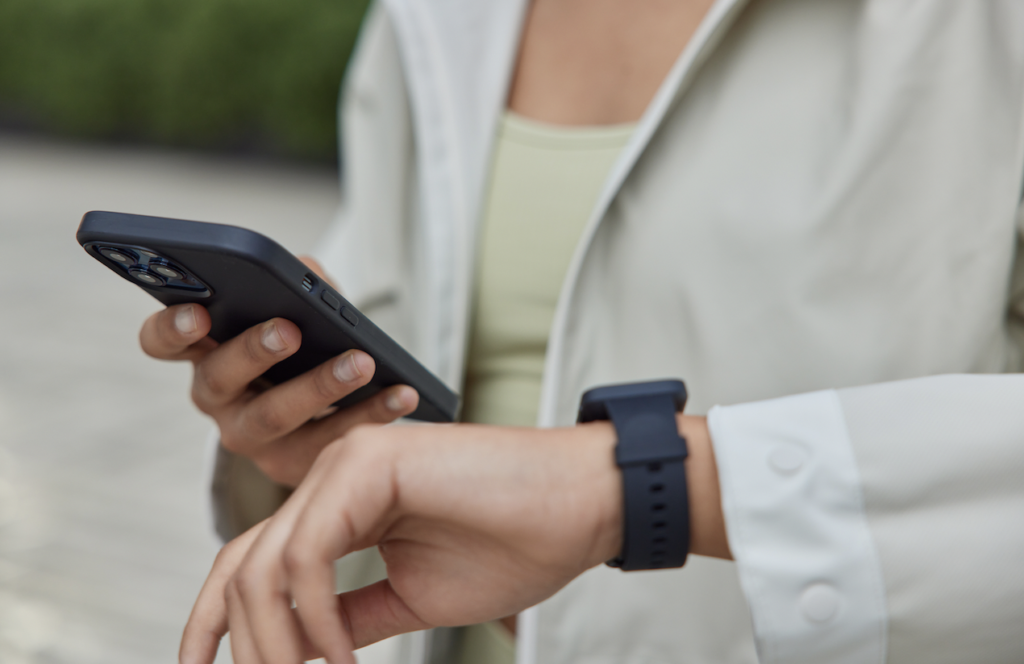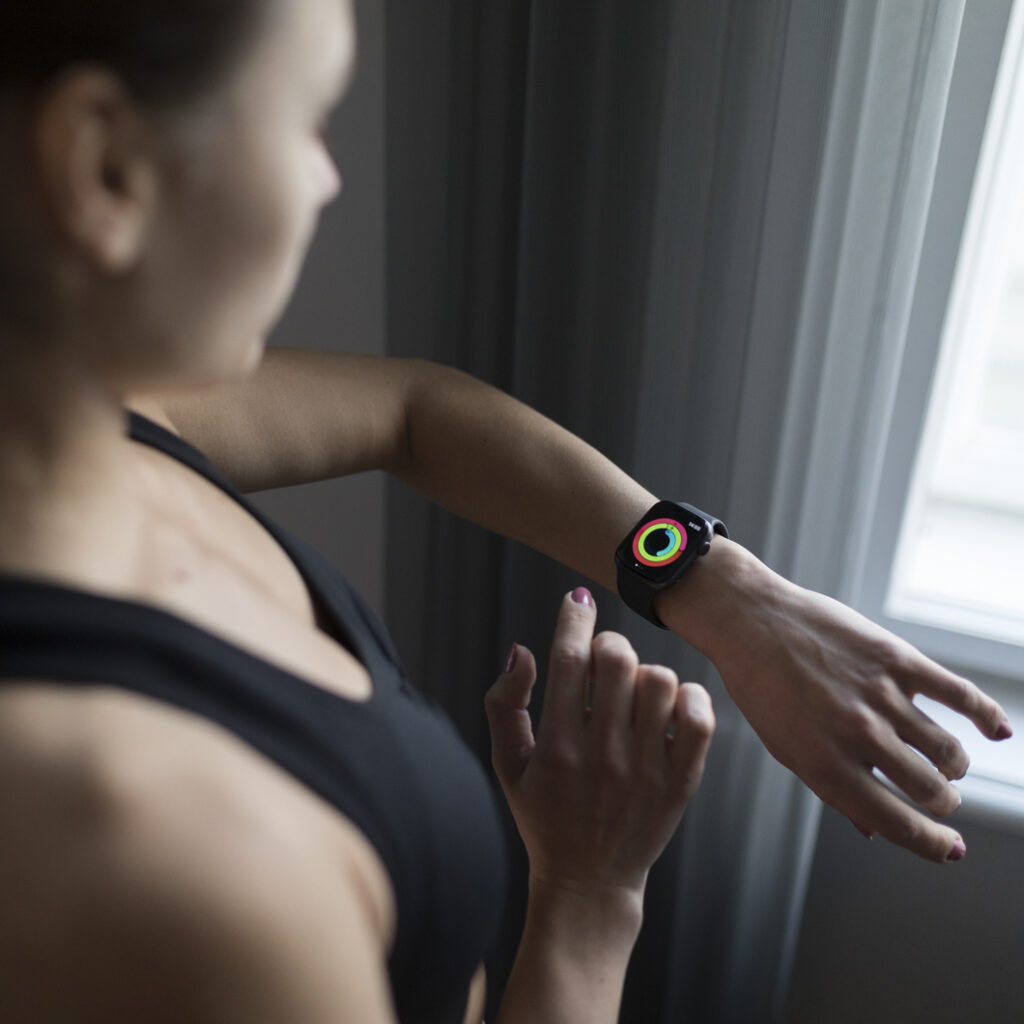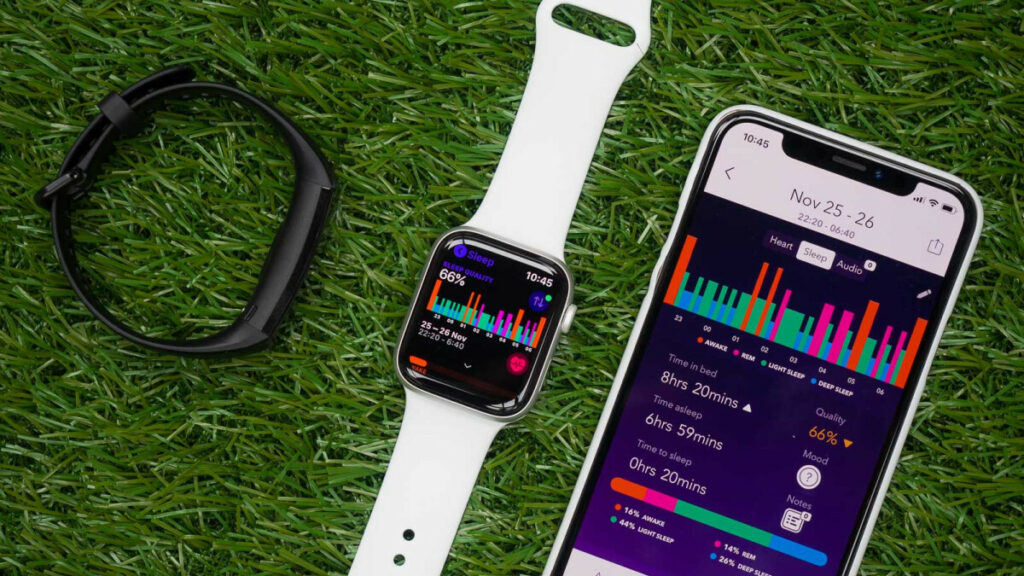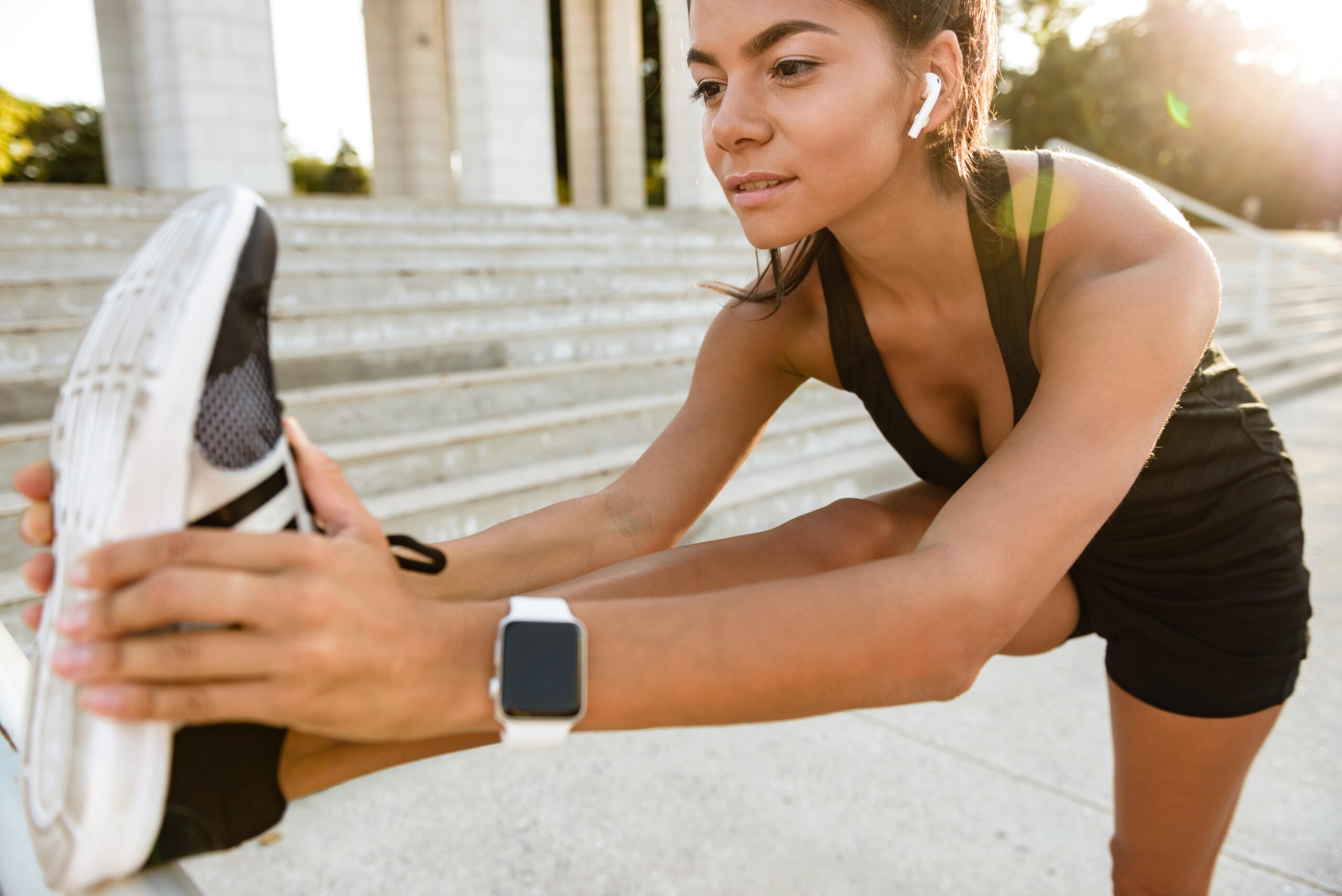In recent years, wearable technology has become increasingly popular in the fitness industry. Wearable devices, which include fitness trackers, smartwatches, and other accessories, have revolutionised the way we approach fitness and wellness by providing real-time data on our activity levels, heart rate, sleep quality, and more.
As a fitness studio software provider, we understand the importance of staying up-to-date with the latest trends and technology in the fitness industry. In this blog post, we’ll explore the benefits of wearable technology and how it can be used to track your and/or your clients fitness progress.
According to research from Deloitte’s Digital Consumer Trends Report,19.2million health tracking devices were bought by UK consumers in 2021, which is more than double from the previous year. Apple is one of the leading brands, with over 47 percent of smartwatch owners.

Real-time Data Tracking
One of the biggest advantages of wearable technology is the ability to track your fitness progress in real-time. Most devices come equipped with sensors that monitor your heart rate, steps taken, and calories burned throughout the day. This data can be synced to your phone or computer, allowing you to monitor your progress over time and make adjustments to your fitness routine as needed.
If you’re setting goals for yourself to be more active then you can easily incorporate small habits to apply in your day to day life. For example, if you find it tedious to get your steps in, opt to park further away from a shop. Choose the steps instead of the escalator, and get up from your desk every 30min to just walk around your house / office for a few minutes.
Personalised Workouts
Wearable technology can also be used to create personalised workouts tailored to your fitness level and goals. Some devices come with built-in fitness plans, while others can sync with third-party fitness apps to provide customised workout routines based on your activity level and fitness goals. It can also advise what recovery time would be best suited to you based on your heart rate and goals.
These tools are great to have in a watch as it allows you to fit a workout in anytime. Even if it’s just a 15min workout to do during your lunchtime.

Motivation and Accountability
Another benefit of wearable technology is the motivation and accountability it provides. Many devices come equipped with features like daily step goals, reminders to move, and alerts when you’ve been inactive for too long. These features can help you stay motivated and accountable to your fitness goals. Even on days when you’re feeling less motivated.
We can easily loose track of time when we’re sitting in front of a computer or lying on the couch. Moving frequently isn’t just about your steps, it’s also important for your posture and brain functioning.
Improved Sleep Quality
Sleep is often overlooked when making fitness goals. But it should be one of your main concerns when looking to improve your fitness and lifestyle. Sleep allows your muscles to heal and build. When you’re not getting enough sleep, your body doesn’t have time to regenerate itself. Sleep is also critical for your mental health.
Using wearable technology to monitor your sleep quality and sleep patterns could be a good indicator for how you can perform and push yourself that day. By monitoring how long you’ve been sleeping, quality of your sleep, and the number of times you wake up during the night and to make adjustments accordingly.

How do you choose the right wearable technology for you?
This will depend on the type of exercise you do and what your goals are. If you’re training for a marathon your tracking will be quite different to someone who just needs a fitness tracker for their gym workouts and to keep them moving.
So you might not neet the top of the range technology if you’re the latter, which could also save you money. A device with a GPS tracker will cost more due to the technology it requires for accurate tracking.
The devices that will track your sleep, stress levels, heart rhythm irregularity, blood oxygen levels and menstrual health will also cost more. But could be very beneficial for some users. You should note that these are only a guide for you to work on, and can never give you 100% accuracy.
According to Telegraph these are the best fitness trackers in 2023:
- Best overall – Garmin Venu 2 Plus
- Best smartwatch for iPhone users – Apple Watch Series 8
- Best fitness tracker – Fitbit Versa 4
- Best fitness tracker for runners – Coros Pace 2
- Best budget fitness tracker – Xiaomi Mi Smart Band 6
In conclusion, wearable technology is a valuable tool for anyone looking to improve your fitness and wellness. With real-time data tracking, personalised workouts, motivation and accountability features. And the ability to monitor sleep quality, these devices are a must-have for anyone serious about their health and wellness. As a fitness studio software provider, we’re committed to helping our you stay ahead of the curve. By incorporating the latest technology and trends into your fitness programs to help you sustain a healthy lifestyle. If you’re interested in learning more about how wearable technology can benefit your fitness routine, contact us today!



